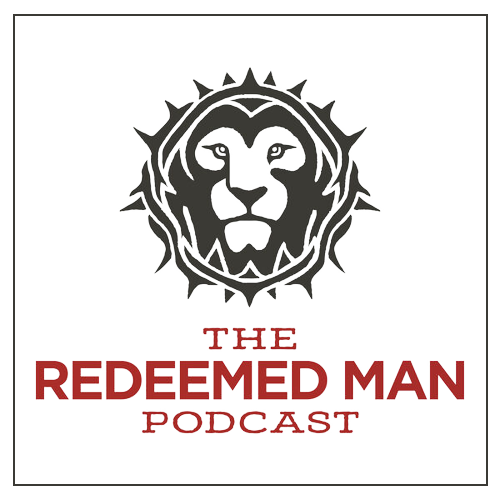Decoding Anger

Introduction
Anger can feel all-consuming. It tells us to deal with the world in absolutes and to act immediately. But anger also often covers for other emotions like anxiety, insecurity, and grief. Taking the time to understand our anger—and other emotions—gives us the opportunity to admit our shortcomings and draw closer to God.
3 Questions for Biblical Anger Management
In the moment our anger awakes, we have a choice to make: how do we respond? When we’re confronted with negative emotions about ourselves and the circumstances, a strong and persistent voice says more control means more safety. This voice lies.
In James 1:19-20 (ESV), the disciple advises, “Know this, my beloved brothers: let every person be quick to hear, slow to speak, slow to anger; for the anger of man does not produce the righteousness of God.” To me, this verse is a little devastating. What do you mean I’m not about to produce the righteousness of God? What about the righteousness owed to me? The good news: we can learn to understand and defuse our anger with patience. And what we learn from our anger tells us a lot about ourselves and even God.
Here are a few questions you can ask yourself next time you start seeing red:
- Why am I angry?
- How can I root my identity in Christ?
- What does God want for me right now?
Why am I angry?
Emotions are a complex thing, so it makes sense that we rarely feel only one thing at a time. However, in the heat of the moment, it’s easy to overlook the nuances. In this article from Psychology Today, L.C.S.W Diane Barth shares that anger is often “a way our psyche protects us from feelings of sadness, helplessness and powerlessness.” Where fear or sadness might cause us to shut down, anger pumps us up and pushes us toward action.
This instinct toward action can be useful, but we shouldn’t let our anger divorce us from the other emotions hiding behind it. It can be difficult to pull our brains away from the details of the thing making us angry, but in order to address the real problem head-on, it’s best to see the situation for what it is. Sometimes, we’re sad, afraid, or anxious.
The good news is, we don’t have to sit alone with our fears and grievances, whatever they are. 1 Peter 5:7 tells us we ought to be “casting all [our] anxieties on him, because he cares for you” (ESV). Rather than holding onto anger as a to ignore complicated feelings, God invites us to acknowledge and surrender our fears, insecurities, and shortcomings to Him. We talked a few weeks ago about what to do next with those feelings, but another step available to us is to reaffirm our identity in Christ.
How can I root my identity in Christ?
It’s natural to get frustrated when we experience a hit to our pride or an obstacle in our path. But, there’s also an opportunity to bring a little perspective to the situation.
If our pride has been hurt, one way forward is to reduce the size of our ego. If you’ve ever tried to pop a three-day-old balloon, you’ll understand why that’s true. Large egos are pretty unstable things.
And humility isn’t just practical, it’s also godly. The trinity—Father, Son, and Holy Spirit—is a self-giving arrangement, overflowing with love. When we let a triune God establish our sense of self-worth, we discover a stunning paradox: we become unshakeable in our God-given identity, yet flexible enough to take many hits to our pride.
What does God want for me right now?
Anger can be a powerful motivator. And while we shouldn’t follow anger blindly, we can begin by noticing what our anger wants from us. My anger often wants more control. It tells me to speak up and make the world conform to my idea of right and wrong. But God’s plan for our lives demands self control and surrender.
If we can’t lean on the confidence of our anger, we’ll need to turn to another plan: abiding in God. We don’t use the word “abide” often these days, so let’s examine it in context. John 15:4-11 (NKJV) says:
Abide in Me, and I in you. As the branch cannot bear fruit of itself, unless it abides in the vine, neither can you, unless you abide in Me.
To abide means to live within, related to the word “abode,” another word for house or home. Living with anger is exhausting: starting your work day, making dinner, and letting the dog out while carrying that tension and stress.
On the other hand, to abide in God means recognizing the reality of the situation. When Jesus says, “My yoke is easy and My burden is light” in Matthew 11:30, he’s not a denying life’s difficulties. It’s a promise of faithfulness. Our yoke is light because we’ve got an all-powerful, infinitely loving being carrying the load alongside us.
God's Design for Us
When God’s desires guide us, our responsibilities simultaneously increase and decrease. They grow as Jesus’ example invites us to greater gentleness, courage, and integrity. They shrink as we confess the world doesn’t rest on our shoulders. Our joy, peace, and ability to care for those we love come from an external source: God’s grace.
If we believe John 10:10, God’s will for us is “life to the full.” Rather than acting and reasoning from our insecurities and grasping for control, God invites us to abide. Listen to God’s wisdom on moving forward through trials, follow His example, and rest.
Decoding anger begins seeking control and ends in surrender and confident peace. We may not know whether we’ll see justice on earth or even how to move forward. But God has promised that He walks with us, and He is in control. The hard part, now, is letting ourselves trust that truth.
Resources for Dealing with Anger
Not everyone has the benefit of a readily available, supportive Christian community, but where we can find godly advice, we’re directed to take. Try these resources from The Redeemed for help dealing with anger:
The Redeemed Small Groups
At its core, The Redeemed is about being a supportive community where men can discuss their problems, worries, and feelings of brokenness without fear of being judged. The primary way we build that community is through our small groups.
This October-December, two groups focus on forging strong relationships and building emotional maturity: The Voice of the Heart and Formative Community, Experiencing Authentic Brotherhood.
In both groups, members will listen and be heard, reflect on biblical wisdom, and find strength and reassurance as they deal with their struggles and shortcomings. If you’re looking for a community but don’t know where to start, sign up for a group or drop by a monthly huddle, hosted in Columbus, GA.
The Redeemed Man Podcast
Over on The Redeemed Man podcast, Director Nate Dewberry sits down each week with men from all walks of life to hear their story and discuss how God has met them in their unique challenges. We recommend tuning in for these three episodes, each with a focus on honoring God with our emotions:
Pedro LaTorre discusses the problems we cause by dealing superficially with our feelings—as well as the tremendous rewards we can reap when we fully address what’s in our hearts. In fact, Pedro suggests that emotional honesty can strengthen our relationships and make us better partners and friends.
Inspired by his own experience in a small group, Kenny Luck founded Every Man Ministries to help others grow into emotional maturity alongside a strong community of men. He challenges us to stop allowing unspoken emotions and emotional maturity direct our lives. This listening guide will help you follow along and reflect on your own journey.
Bryan Koch shares how he dealt with grieving the loss of his wife and his left leg in an accident with a drunk driver, and the frustrations, choosing forgiveness, and living faithfully through grief that came after.
The stories these men tell are powerful examples. They’ve come through steep insecurity, grief, and frustration to hard-won godly wisdom and solid, supportive relationships. As Pedro put it, support like this can “make you feel like you’ve got an army behind you.”
Conclusion
Anger often masks deeper hurts and insecurities. As we work towards patience and self-control, it can be tempting to let those deeper emotions fester, but as objects of God’s affection, we are invited to dig a little deeper, find the roots of our anger, and surrender the thorns to our Creator. Acting from confidence in God’s grace and justice allows us to get perspective, and even take our cue from the words God spoke over Adam in Genesis: “It is not good that the man should be alone,” (Genesis 2:18, ESV).
Being made in the image of God means being made for community. In his letter to the church at Galatia, Paul instructs the church to, “Bear one another’s burdens, and so fulfill the law of Christ,” (Galatians 6:2). To bear another’s burden and to have our own load lightened is a blessing and a command.
In short, when we take the time to examine our hearts honestly and listen for God’s voice, we find that we are not alone or even solely in control of our lives. Instead, we are presented with a new reality in which God’s joy and peace become our own, and our anger can serve to draw us closer to surrender.
Connect with The Redeemed Community
If you’re inspired to explore the transformative power of spiritual freedom and would like to journey alongside like-minded believers, consider joining one of The Redeemed’s small groups. Whether you prefer meeting in person or connecting online, our community is here to support and grow with you. Join us and discover how surrendering together can lead us into greater freedom.
More Posts From The Redeemed
The Redeemed offers articles and resources on spiritual growth, relationships, family, overcoming trauma and loss, and more. Providing guidance for incorporating Biblical teachings into our everyday lives.

Prayer and Fasting in Community Strengthens Christian Men
Who are you becoming in Christ?
Prayer and fasting are deeply personal practices, but they are not meant to be practiced only in isolation. When they are shared in community, they become places of encouragement, accountability, and deeper formation. As you discuss the following questions, resist the urge to perform or fix. Instead, listen well, speak honestly, and encourage one another. Growth begins with truth, and God often uses community for the forming work he wants to accomplish in us.

The Discipline of Self-Denial: Why Christian Men Need Prayer and Fasting
We live in a culture obsessed with self-indulgence. From the moment we wake up, we’re told we deserve more: more comfort, more success, more experiences, more stuff. Bigger is better. Newer is necessary. If something feels hard, inconvenient, or uncomfortable, we’re encouraged to avoid it or upgrade out of it. The message is constant and convincing: you owe it to yourself.

From Darkness to Light: How Jesus Brings Hope to Men in Dark Seasons
One of the most iconic parts of the Christmas season is the lights. They’re everywhere: on our houses, wrapped around our trees, lining our streets. But for a lot of men, all the brightness on the outside only highlights how dark things feel on the inside. We know the world is broken. We feel the weight of our own failures. And no matter how many lights we hang, they can’t hide the truth that sometimes life feels pitch black.




